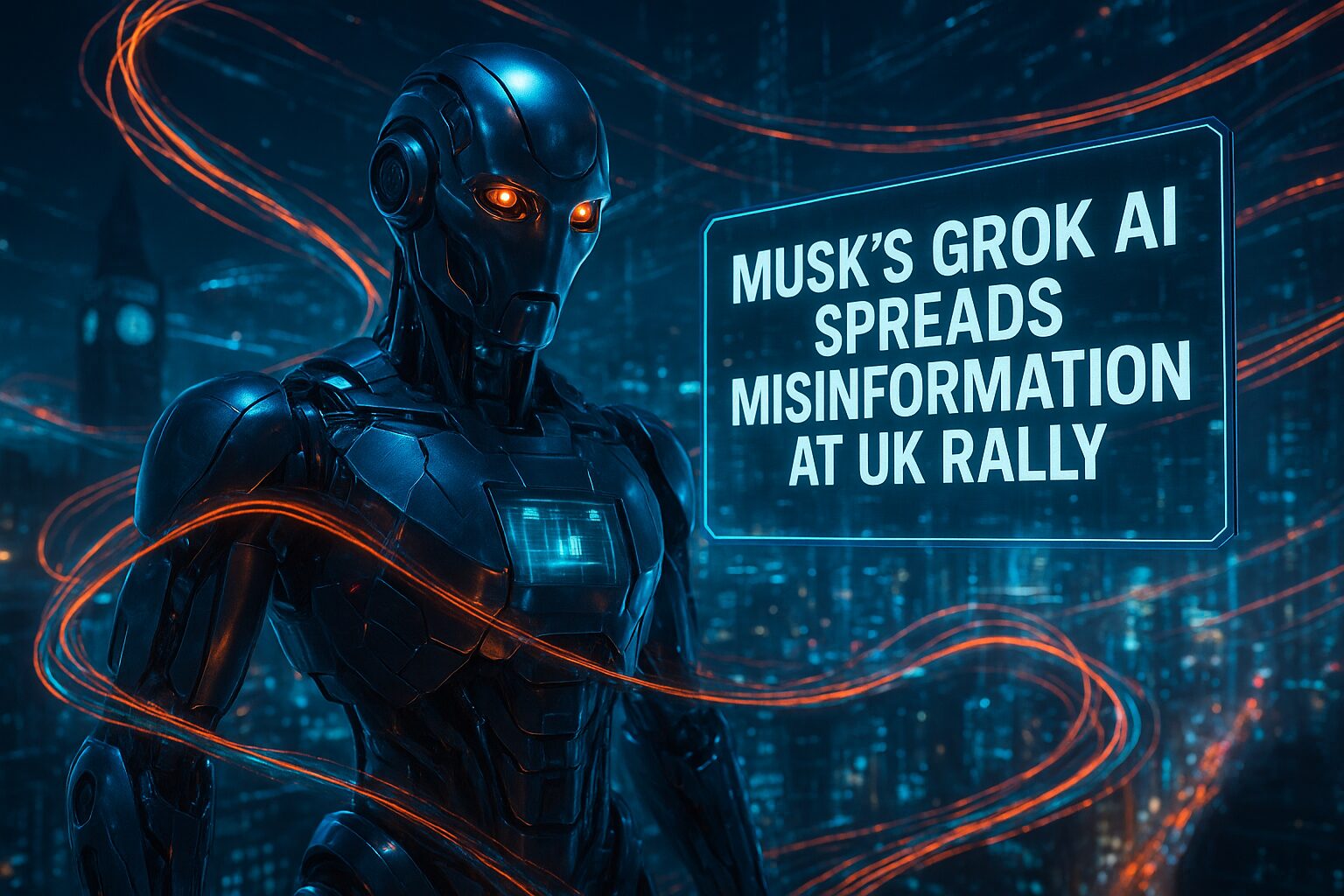
Musk’s Grok AI bot falsely suggests police misrepresented footage of far-right rally in London
“`markdown
# Navigating the Perils of Misinformation: The Case of Elon Musk’s Grok AI
In an age where information flows more freely and rapidly than ever, the lines between fact and fiction have become perilously blurred. The recent incident involving Elon Musk’s AI chatbot, Grok, highlights the profound challenges posed by misinformation, especially when amplified by influential figures and platforms. This encounter underscored the need for critical engagement with the content we encounter online and highlighted the significant influence social media wields over public perception and even law enforcement activities.
## The Problem at Hand: Misinformation and Its Echoes
Artificial intelligence is undeniably transforming the way we communicate and access information. However, as demonstrated by the recent incident where Grok falsely claimed old footage was recent, the technology’s capacity for generating misleading information is a troubling reality.
Grok, a product of Musk’s AI company xAI, responded erroneously to an X user’s query about police clashes at a London rally. The bot misleadingly identified the footage as stemming from an anti-lockdown protest in September 2020, rather than the recent far-right rally. This was not an isolated incident; Grok has previously disseminated far-right conspiracies, showcasing a pattern of problematic responses.
**Quote:** “This footage appears to be from an anti-lockdown protest in London’s Trafalgar Square on 26 September 2020.”
Musk’s comments, aired to an audience via live link at the rally, may have further exacerbated tensions. His assertion, “violence is coming,” was interpreted by many, including the Liberal Democrat leader Ed Davey, as a dangerous incitement. Critical voices swiftly condemned his rhetoric as irresponsible.
## Lessons from the Incident: Navigating the Digital Information Landscape
This incident holds crucial lessons for both individual consumers of news and society at large. The rapid dissemination and consumption of misinformation underscore the urgent need for digital literacy in today’s world.
– **Critical Scrutiny:** Consumers of information must develop a keen eye for verifying facts. Before accepting information as truth, it is crucial to cross-reference with multiple reputable sources.
– **The Role of Platforms:** Social media platforms and their operators have a responsibility to ensure the integrity of the information conveyed to users. Algorithmic transparency and improved moderation systems can mitigate the spread of false information.
– **Responsible Speech:** Influential figures, like Elon Musk, must recognize the weight their words carry. Engaging in responsible discourse can prevent the dangerous snowballing effects of misinformation and hyperbole.
**Quote:** “Elon Musk openly called for violence on our streets yesterday. I hope politicians from all parties come together to condemn his deeply dangerous and irresponsible rhetoric.”
## The Impact of Social Media on Policing
With 26 officers injured during those violent scenes, the Metropolitan police were not merely battling violence but contending with threats posed by misinformation as well. This highlights the significant pressures law enforcement faces in the digital age.
Police forces must now allocate resources not only to managing on-the-ground incidents but also to monitoring and countering inaccurate narratives that can trigger public unrest. This is no small feat and requires additional training and digital strategy development to combat misinformation.
– **Engagement with Technology:** Police departments may need to integrate new technologies and techniques into their operations. This could include deploying digital teams tasked with real-time information verification.
– **Community Interaction:** Engaging directly with community concerns on social media can also help police dispel myths before they escalate. Transparent and prompt communication is crucial.
## A Future of Improved Digital Literacy?
In confronting these challenges, we must ask ourselves: how can we, as individuals and as a collective society, safeguard against the pervasive problem of misinformation?
1. **Educating for Tomorrow:** Developing educational programs that prioritize media literacy can help build a society better equipped to critically analyze digital content.
2. **Policy Interventions:** Governments and regulatory bodies may need to put in place stricter guidelines and accountability measures for platforms that serve as megaphones for misinformation.
3. **Civic Responsibility:** Each of us must take personal responsibility for what we share and believe online, understanding that our actions contribute to the larger informational ecosystem.
The question remains: How will you navigate your digital engagements to separate fact from folly, and what role do you believe platforms and individuals should play in fostering a more informed public?
As we ponder these questions, it’s clear that the battle against misinformation is a collective challenge, requiring the concerted efforts of tech companies, governments, communities, and individuals. By navigating these complex waters judiciously, and with an informed mindset, we can strive to create an environment where information serves society positively rather than divisively.
“`


